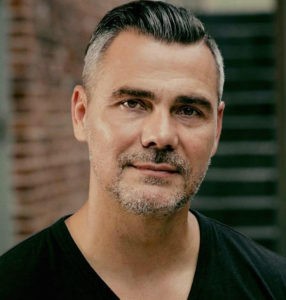It was about this time nine years ago that one of GracePointe’s members described our congregation to a member of the press as being “gay-friendly.” Amazingly, in response to those extremely weak credentials, the infamous Westboro Baptist Church decided to come all the way from Kansas to picket us.
The reality was, back then, our church may indeed have been “friendly” to LGBTQ people, but those same people still couldn’t teach a Sunday school class or serve as an elder or be hired as a staff person or have our clergy perform their weddings. In retrospect, if I would have been in the shoes of our LGBTQ members in those days, I would not have been very moved by our “friendliness” nor the limited and demeaning “membership” we offered them.

Stan Mitchell
And yet, back then, there were more than a few LGBTQ Christians who were just that — moved and grateful. The reality is, they were appreciative (if not satisfied) with a church in the buckle of the Bible Belt that was at least attempting to take the sharpest edges off Christianity’s standard rejection of them. It is true that they graded us on a very merciful curve.
So it was there, beneath the table we called “The Lord’s Table,” the place where we served a holy meal called “The Lord’s Supper,” these precious, marginalized, abused children of God were, at least for a time, willing to live.
Quite often now, I find myself thinking about those days. And I know the most reasonable explanation for the forbearance and graciousness of our LGBTQ members toward our church was that these dear people were hungry. Starving even. Starving so much, they were willing to extract life from the wine-soaked Communion crumbs that fell from the corners of our mouths each Sunday. Somehow, there beneath our communion table, those crumbs of bread and dribbles of wine sustained these dear children of God.
Until they didn’t.
You see, there comes a time when dining beneath the table begins to poison your soul, your dignity, your humanity. And there comes a time when those “magnanimous” crumbs and dribbles that once kept you alive begin to mock the very hunger and thirst they previously curbed. And this finally happened to the queer members of our church. They began to wake (before the others of us did) to the reality that, in a very real way, the “welcome” we offered was actually worse than no welcome at all. So, fortunately for us, they began to ask for more. Not belligerently, though they deserved that right, but through tears.
“There comes a time when dining beneath the table begins to poison your soul, your dignity, your humanity.”
And because of their righteous request, their loving press, our minds were finally opened and changed as a church — our hearts were broken and laid bare (at least some of them). Because of their incredible love and patience, because of their true display of what it means to be followers of Jesus, GracePointe changed and repented of our “friendliness” and “acceptance.” And while truly, we are now “affirming” and “fully inclusive,” even those words fall short for us.
For us now, while those words are arguably still necessary, we know that in the end, they are also not enough. They even can come across as patronizing, condescending, self-congratulatory and self-righteous, focusing on the “largesse” or “generosity” of those of us who offer them in self-description.
Ultimately, we have figured out that we are the ones who actually needed the graciousness of the community we thought we were being gracious to. They affirmed and included us when we didn’t deserve it. They affirmed and included us at the same time we were doing the exact opposite to them.
As a result, our congregation now would more appropriately label ourselves with words like “aware” and “repentant” and “blessed” and “forgiven” by the very people we for so long dehumanized and wounded. We are the ones who, with every passing day, become more deeply moved and truly grateful.
Stan Mitchell is founding pastor at GracePointe Church in Nashville, Tenn, and co-founder of Everybody Church, an inclusive, global online community of faith. He is a graduate of Vanderbilt Divinity School.


